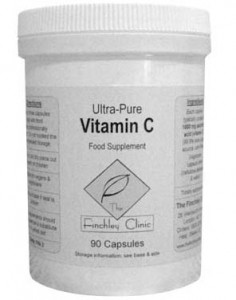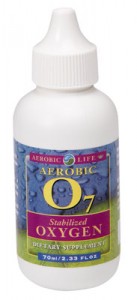As the year gathers speed and summer drifts into autumn, people’s thoughts turn to the weather changing and temperatures dropping. Which means they start to adjust their wardrobe and – in some cases – lifestyle accordingly. They start to think about being more vigilant about protecting themselves from the potential infections and ill health that lower temperatures can bring. In short, they start to think in terms of trying to boost their immune system. But why should they? Why is the immune system so important? What does it do for us? And what can we do to keep it operating as effectively as possible?
Put simply, the immune system is the part of the body that protects us from certain harmful organisms and toxins (some of which can be absorbed into the body when we catch infections in the forms of colds, flu and the like), which stop our body from functioning properly and so, yes, make us feel ill. The system itself is made up of a combination of cells, tissues and organs that, working together as an efficient network, prevent unwelcome pathogens from doing their dirty work in our bodies. In practice, the system’s actually made up of two parts – the innate immune system (protects against infections and aids the healing of cuts and bruises) and the adaptive immune system (protects against viruses, of which there are millions generated each year, thus this part of the system is distinguished by its ability to adapt to fight them).
Even more specifically, the nuts and bolts of both these halves of the immune system are white blood cells (or leukocytes). Once they’ve formed, these cells travel through the blood stream and enter the lymphatic system (something of a sub-section of the wider immune system) where they stimulate its organs, including the tonsils and thymus, to produce antibodies that find bacteria and other harmful organisms’ antigens, adhere to them and destroy them.
Disorders
Unfortunately, for some people the efficacy of their immune system isn’t what it should be. This could be down to many different factors, but one thing’s for sure; a weak immune system can be really bad news as you age. Lack of exercise, bad diet and the changes aging brings to the body can all contribute1. The three major types of immunity disorder are:
- Autoimmunity – these conditions (of which 80 are known to exist, including type 1 diabetes and rheumatoid arthritis2) see the immune system attack healthy tissue it’s supposed to be protecting
- Immunodeficiencies – these disorders may not ensure enough white blood cells are produced; they can be caused by overexposure to the likes of tobacco smoke, certain toxic metals and pesticides3
- Hypersensitive/ over-reactive immune system – this one involves immune cells targeting and attacking harmless allergens, potentially damaging tissue and organs and increasing the chance of the body suffering from serious diseases.
Support
So to prevent such disorders, what can we do to support our bodies’ immune systems? Well, here are four headline behaviours everyone should make a priority:
- Develop a healthy diet – processed foods and those containing refined sugars and flavourings, as well as soda, are out; vitamin- and antioxidant-rich fruits and vegetables, such as broccoli, blueberries, kale, spinach, lemons, avocado, oregano oil4 and garlic5, are in (especially if organic)
- Exercise – helping to increase your oxygen intake and thus lung capacity, exercise is terrific at getting your metabolism going and promoting a healthy heart and efficient circulation; note: consistent exercise is key
- Destress – becoming stressed increases inflammation and so will aggravate your immunity; trying to destress and finding ways to properly relax then are important (talking through problems isn’t a bad idea, nor is meditation)
- Plant extracts – the nutrients and vitamins packed full in many easily available plant extracts are terrific for boosting your immunity; you might try echinacea (a favourite in traditional medicines for centuries and effective at fighting off colds and flu4), ginseng (especially good at tackling stress) and aloe vera (rich in antioxidants and the immunity-aiding compounds acemannan and aloctin A3, 6).
Supplements
Of course, another fantastic and easy way to consume enormously beneficial vitamins and nutrients is through supplements. The following – all of which are great immune system supplements – are available through The Finchley Clinic and, naturally, we highly recommend every one of them:
Tapioca Vitamin C (1,000mg; 90 capsules) – as this supplement’s sourced from tapioca (cassava root), it’s almost unheard of to cause allergic reactions and contains 99.9% vitamin C in the form of ascorbic acid, renowned as an excellent anti-viral antioxidant, immune booster and major facilitator to anti-aging and building collagen
Vitamin D3 (5,000iu; 90 tablets) – chewable and with a natural apricot flavour, this supplement provides great support for both the immune and skeletal systems; it’s also kosher
Curcumin Plus (90 capsules) – a powerful antioxidant that aids good immune response, not least as it contains both ginger and sage extracts (specifically gingerols and ursolic acid, respectively)
Aerobic O7 (70ml) – a stabilised liquid oxygen product that’s excellent at prompting the creation of new white blood cells, which (as made clear above) play a crucial role in the efficacy of the immune system
Antioxidant Supreme (90 capsules) – a great all-rounder but especially for fighting free radicals, thus it can importantly contribute to boosting the immune system.
References:
- MedlinePlus. ‘Aging changes in immunity’. https://medlineplus.gov/ency/article/004008.htm
- MedinePlus. ‘Autoimmune diseases’. https://medlineplus.gov/autoimmunediseases.html
- Winans B., Humble M. C. and Lawrence B. P. ‘Environmental toxicants and the developing immune system: a missing link in the global battle against infectious disease?’. Reproductive toxicology (Elmsford, NY). 2011; 31(3): 327-336. doi:10.1016/j.reprotox.2010.09.004.
- Georgetown University Medical Center. ‘Oregano Oil May Protect Against Drug-Resistant Bacteria, Georgetown Researcher Find’. https://www.sciencedaily.com/releases/2001/10/011011065609.htm
- Lissiman E., Bhasale A. L. and Cohen M. ‘Garlic for the common cold’. doi: 10.1002/14651858.CD006206.pub4.
- Bany J., Siwicki A. K., Zdanowska D., Sokolnicka I., Skopińska-Rózewska E. and Kowalczyk M. ‘Echinacea purpurea stimulates cellular immunity and anti-bacterial defence independently of the strain of mice’. Pol J Vet Sci. 2003; 6(3 Suppl): 3-5.


